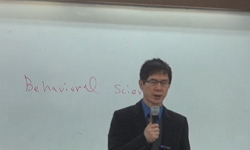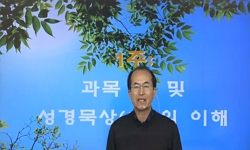...
http://chineseinput.net/에서 pinyin(병음)방식으로 중국어를 변환할 수 있습니다.
변환된 중국어를 복사하여 사용하시면 됩니다.
- 中文 을 입력하시려면 zhongwen을 입력하시고 space를누르시면됩니다.
- 北京 을 입력하시려면 beijing을 입력하시고 space를 누르시면 됩니다.

Антиутопическая модель мира в романе А. Курчаткина «Минус 273 градуса по Цельсию» = The Dystopian Model Of The World In The Novel Minus 273 Degrees Celsius By Anatoly Kurchatkin
한글로보기https://www.riss.kr/link?id=A107021313
- 저자
- 발행기관
- 학술지명
- 권호사항
-
발행연도
2020
-
작성언어
-
-
주제어
Dystopia ; Model of the world ; Metaphor ; Absurdity ; Totalitarianism ; Freedom ; Антиутопия ; Модель мира ; Метафора ; Абсурд ; Тоталитаризм ; Свобода
-
KDC
929
-
등재정보
KCI등재
-
자료형태
학술저널
-
수록면
225-248(24쪽)
- 제공처
- 소장기관
-
0
상세조회 -
0
다운로드
부가정보
다국어 초록 (Multilingual Abstract)
В статье рассматривается роман Анатолия Курчаткина «Минус 273 градусов по Цельсию». Роман продолжает традицию антиутопической литературы и содержит ряд элементов, характерных для архисюжета антиутопии. При этом автор прямо указывает на принципиальную для него установку: образ «иномира» важен для него прежде всего как метафора реальности. В центре внимания статьи - представленная в романе антиутопическая модель мира. В описании социума и взаимоотношений власти и граждан автор следует традициям предшественников, показывая стремление системы добиться раболепного преклонения, основанного на страхе и восхищении. В отличие от ряда антиутопий, где частное пространство мыслится единственной ценностью и гарантом внутренней свободы, в романе Курчаткина оно утрачивает спасительную функцию, поскольку также приспосабливается к условиям, диктуемым извне. Герой Курчаткина, в отличие от героев ряда известных антиутопий, не занимает активной позиции, он ведом обстоятельствами, и даже присоединение к группе повстанцев в конце романа не может рассматриваться как сознательное стремление к борьбе. В статье произведён анализ авторской позиции в финале романа. Вопреки мнению некоторых критиков, автор не предоставляет герою шанс на спасение и выход из тупика. Стремясь вырваться из системы стерильности, герой примыкает к противостоящему ей движению сопротивления, но, судя по всему, попадает из одной моральной тюрьмы в другую. Вопрос о возможности обретения свободы остаётся в романе открытым, и ответ на него, по-видимому, лежит не в сфере борьбы внешних сил, а в трансформации индивидуального сознания.
다국어 초록 (Multilingual Abstract)
The article presents an attempt to examine the novel Minus 273 Degrees Celsius by Anatoly Kurchatkin. The novel belongs to the genre of dystopian fiction, thus a number of features characteristic of the dystopian archplot can be found in the novel. Th...
The article presents an attempt to examine the novel Minus 273 Degrees Celsius by Anatoly Kurchatkin. The novel belongs to the genre of dystopian fiction, thus a number of features characteristic of the dystopian archplot can be found in the novel. The writer quite clearly states his principle: the another world image is significant for him as a metaphor of reality in the first place. The article focuses on the dystopian model of the world depicted in the novel. While presenting the social environment and the relationships between the authorities and the citizens, the writer follows the traditions established by his predecessors which expose the system’s urge for the people’s slavish devotion incited by fear and admiration. In contrast to some dystopias, in which personal environment is considered as the only value and can guarantee a person’s inner freedom, the writer withdraws such salvatory function from the personal inner space so it has to adapt to the environment imposed by the outer world. The main character, as opposed to other characters of some popular well-known dystopias, does take a back seat, he is driven by circumstances, and his joining to a group of rioters at the end of the novel cannot be considered as his deliberate search for struggle. The article mainly analyses the writer’s position at the end of the novel. Opposite to the opinion of some critics, the writer does not give his main character a chance to find salvation and to break the deadlock. In an attempt to break through that sterile system the main hero joins the resistance movement, but apparently he gets out of one moral prison in order to get into another one. The question of finding freedom remains open in the novel, and the answer to it cannot be found in the domain of fighting of the outer forces but in the transformation of a person’s conscience.
목차 (Table of Contents)
- I. Введение II. Основная часть III. Заключение Литература
- I. Введение II. Основная часть III. Заключение Литература
동일학술지(권/호) 다른 논문
-
- 충북대학교 러시아 알타이지역 연구소
- 길윤미(Kil Yoon Mi)
- 2020
- KCI등재
-
- 충북대학교 러시아 알타이지역 연구소
- 최성호(Choi, Sung-ho)
- 2020
- KCI등재
-
- 충북대학교 러시아 알타이지역 연구소
- 문준일(Moon, Joonil)
- 2020
- KCI등재
-
러시아의 전통 가옥 내 ‘붉은 구석’과 ‘벽난로 구석’의 신앙적 요소와 기능
- 충북대학교 러시아 알타이지역 연구소
- 이건욱(Lee, Kun Wook)
- 2020
- KCI등재





 RISS
RISS 스콜라
스콜라







